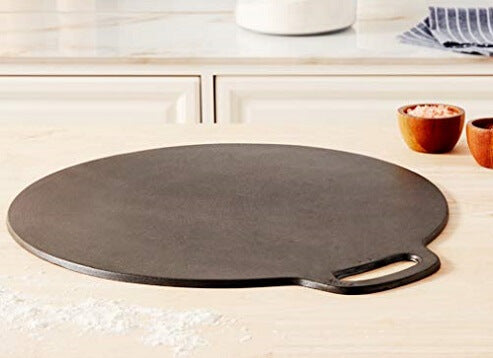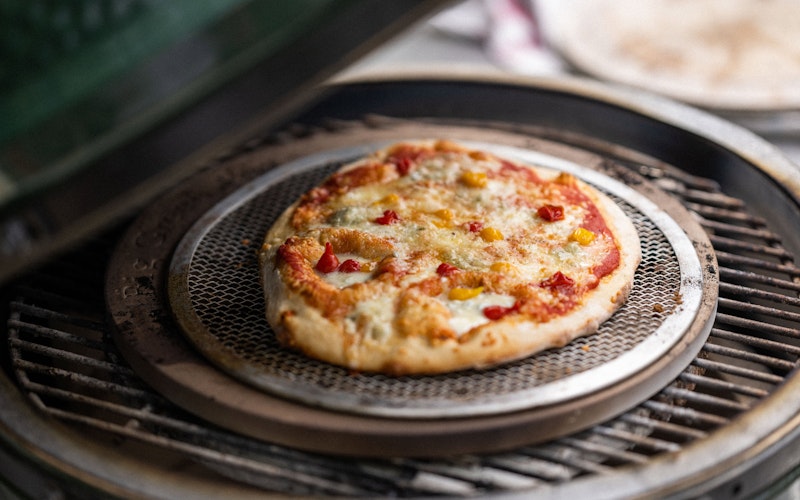For kitchen professionals, crafting the perfect bread or pizza crust is both an art and a science. One revered tool in achieving this is the baking stone, but why does a simple stone make such a significant difference? To understand this, let's delve into the mechanics and benefits of this time-honored kitchen tool.

The Science Behind Baking Stones
Baking stones, often made from ceramic, cordierite, or salt, are known for their remarkable heat retention and even heat distribution. When placed in the oven, a baking stone acts as a heat reservoir, holding and then radiating warmth back into the dough. This ensures a consistent heat transfer, leading to an evenly baked crust.
Heat Retention and Distribution
The irregular and porous texture of a baking stone allows it to absorb heat efficiently. When the dough is placed onto the stone, it receives an immediate transfer of heat, helping to kickstart water evaporation and rapid yeast activity. This results in a crust that is crisp on the outside yet retains a chewy interior. As noted in the article on the Maillard Reaction at Culina Cooks, this reaction is crucial in achieving the characteristic browning and flavor complexity of baked goods.
Creating the Perfect Steam Environment
Another hidden advantage of baking stones lies in their ability to manage moisture. As the dough bakes, the stone absorbs excess moisture, which prevents the crust from becoming soggy. This is particularly beneficial for breads and pizzas where a crisp finish is desired. Keeping humidity in check is critical for achieving the airy, chewy interior while maintaining a robust, crispy exterior.
Maximizing the Use of Baking Stones
Mastering the use of a baking stone can significantly enhance your baking outcomes. The proper preheating of the stone is essential. Experts recommend heating your stone for at least an hour before baking to ensure it reaches the optimal temperature. Learn more about using a baking stone from this comprehensive guide on Flavory Cooking.
Types of Baking Stones for Different Applications
There are various types of baking stones available, each suited to different baking needs. Cordierite stones are prized for their durability and ability to withstand thermal shock, making them ideal for high-temperature baking. Conversely, ceramic stones provide excellent heat retention but are more susceptible to cracking if not handled properly. Exploring these materials can help kitchen professionals stock their tools to best meet their baking demands.
Complementing Tools and Techniques
While baking stones play a pivotal role, they are most effective when used in conjunction with other baking techniques and tools. For instance, using a pizza peel to transfer dough onto a hot stone ensures safety and precision. Check out this cast iron pit discussion for insights on complementary cooking techniques that boost flavors and textures.
Conclusion
In conclusion, the charm of a baking stone lies within its unique properties that foster the perfect baking environment. From managing moisture and supporting ideal heat distribution to influencing the crucial crust formation process, baking stones are a worthy investment for any professional kitchen. To further enhance your baking skills, explore our article on whole wheat bread techniques using baking stones.
FAQ
What is the best way to clean a baking stone?
It is recommended to scrub the stone with a brush or a dry cloth, avoiding soap and water to prevent any unwanted flavors seeping into your bakes.
Do you need to season a baking stone?
No, unlike cast iron, baking stones do not require seasoning. Proper preheating and maintenance are sufficient to prolong their lifespan and effectiveness.
How should I store a baking stone?
After cooling, store your baking stone in a dry, safe place to prevent cracking or damage from fluctuations in temperature or humidity.
This article contains affiliate links. We may earn a commission at no extra cost to you.





Leave a comment
This site is protected by hCaptcha and the hCaptcha Privacy Policy and Terms of Service apply.